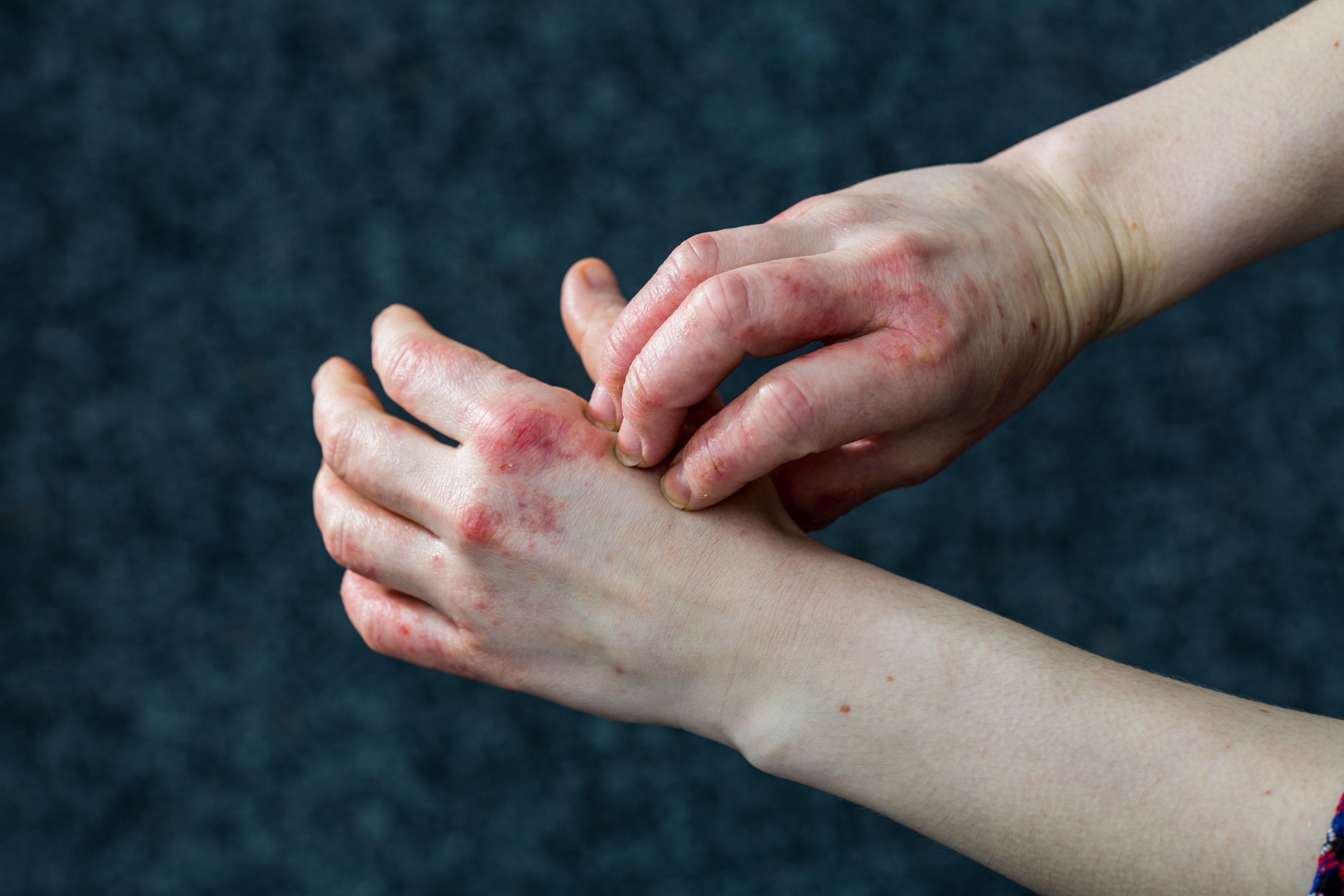
- Acne
- Actinic Keratosis
- Aesthetics
- Alopecia
- Atopic Dermatitis
- Buy-and-Bill
- COVID-19
- Case-Based Roundtable
- Chronic Hand Eczema
- Chronic Spontaneous Urticaria
- Drug Watch
- Eczema
- General Dermatology
- Hidradenitis Suppurativa
- Melasma
- NP and PA
- Pediatric Dermatology
- Pigmentary Disorders
- Practice Management
- Precision Medicine and Biologics
- Prurigo Nodularis
- Psoriasis
- Psoriatic Arthritis
- Rare Disease
- Rosacea
- Skin Cancer
- Vitiligo
- Wound Care
News
Article
New Dermatology Social Comparison Scale Demonstrates Acceptable Psychometrics for Clinical and Research Applications
Author(s):
Researchers recently developed and validated the 3-question social comparison scale, which may be applicable outside of conditions such as eczema and psoriasis.
In a recent paper published in the International Journal of Dermatology, researchers Choi et al developed and validated a 3-question Dermatology Social Comparison (DSC) scale, noting its current ability for application in conditions such as eczema and psoriasis, with potential applications in additional disease states upon further validation.1
According to study authors, social comparison and its relevance in health care, particularly in mental health studies involving social media, have recently garnered attention. However, its application in dermatology remains limited.
Previous research, published in the Journal of Dermatological Treatment in 2021, had pointed to the significance of social comparison in dermatological patient outcomes.2 Comparing oneself to others affects how dermatology patients perceive their quality of life, researchers found. Another prior study, published in the European Journal of Internal Medicine in 2022, found that clinicians may underestimate how severe a patient's condition is because they may use different standards for comparison.3
However, researchers noted that existing measures lacked specificity for the dermatological context, and they aimed to fill this gap by developing and validating a measure of social comparison tailored for dermatology patients.
Their initial exploration of social comparison in dermatology involved qualitative interviews with patients and health care providers. Existing social comparison tools were reviewed, and items relevant to dermatology were selected. An expert panel refined these items, resulting in an 8-question Likert scale.
The scale underwent pilot testing with patients to assess comprehension and clarity. Feedback from this phase led to refinement and reduction of the item pool. The final scale was validated in adult patients with eczema and/or psoriasis in 3 dermatological centers. Over 1,000 patients participated in the study.
Scale questions/prompts included (final prompts italicized):
- It is normal to have rashes
- I frequently encounter others with worse skin conditions
- I often compare my situation in life to other people I know
- When I see someone with a worse skin condition, I fear that I will go the same way
- When I see someone with a worse skin condition, I realize how well I'm doing
- When i see someone with clear skin, I feel unhappy about my own situation
- When i see someone with better skin condition, I have hope that my situation will improve
According to researchers, the scale demonstrated acceptable reliability and validity. Exploratory factor analysis revealed a single dominant factor, and confirmatory factor analysis confirmed the model fit. Rasch analysis provided further insights into item discrimination and person fit.
Furthermore, the scale correlated positively with quality of life impairment, anxiety, and subjective severity, while negatively correlating with stability and resilience. These findings aligned with existing knowledge on social comparison effects.
"The DSC scale, which measures the tendency for individuals to make social comparisons in the context of their disease, is tested and shown to be reliable and valid as a brief measure for clinical and research purposes in patients with eczema and psoriasis," according to study authors Choi et al. "This measure will be particularly relevant when assessing factors impacting health perceptions and quality of life impairment. Its applicability to other skin conditions needs further validation."
References
- Choi E, Du R, Yew YW, et al. Development and validation of the Dermatology Social Comparison (DSC) Scale. Int J Dermatol. April 9, 2024. Accessed April 16, 2024. doi:10.1111/ijd.17146
- Choi CEE, Yee MYF, Tan LYL, Phan P. A qualitative study of dermatology patients and providers to understand discordant perceptions of symptom burden and disease severity. J Dermatolog Treat. 2021. Accessed April 16, 2024.
- Long V, Lau XMN, Ng CX, Phan P, Choi CEE. Discordance in perception of disease severity between patient and physicians – a systematic review and meta-analysis. Eur J Intern Med. 2022. Accessed April 16, 2024.
Newsletter
Like what you’re reading? Subscribe to Dermatology Times for weekly updates on therapies, innovations, and real-world practice tips.










2 Commerce Drive
Cranbury, NJ 08512
All rights reserved.






